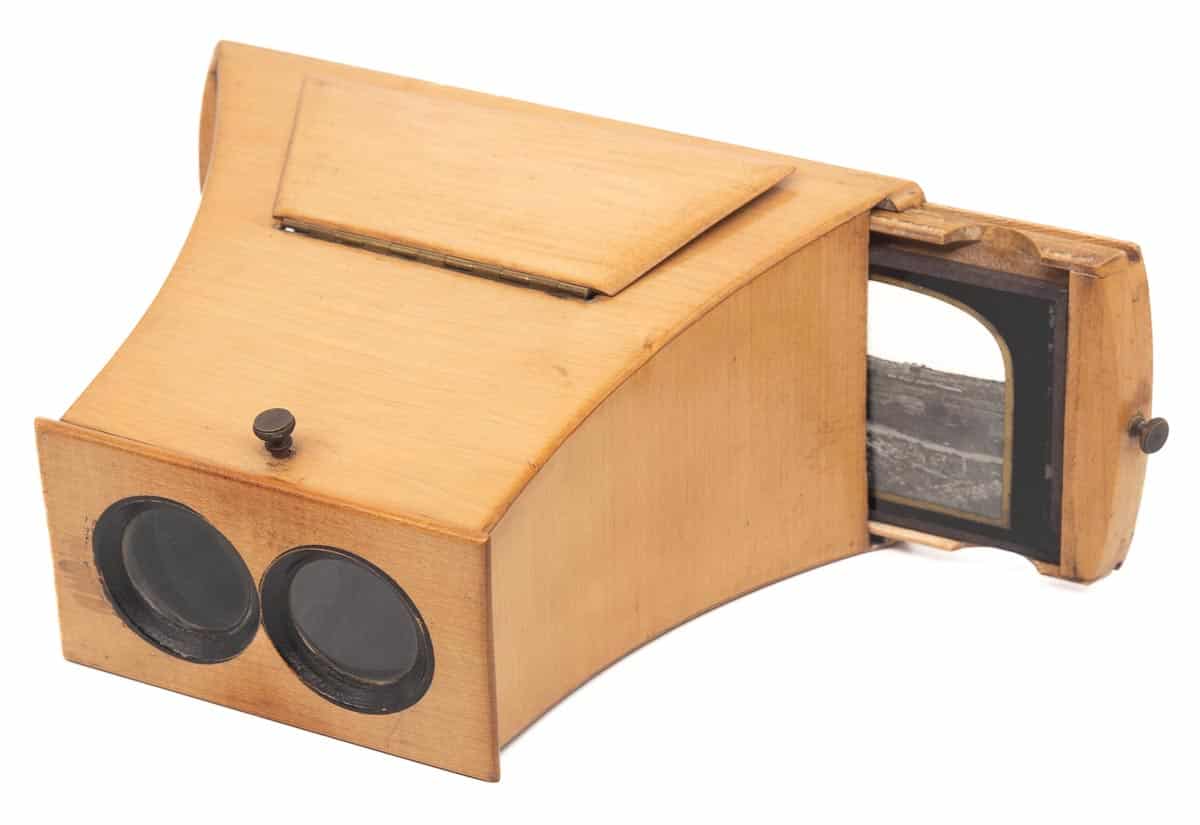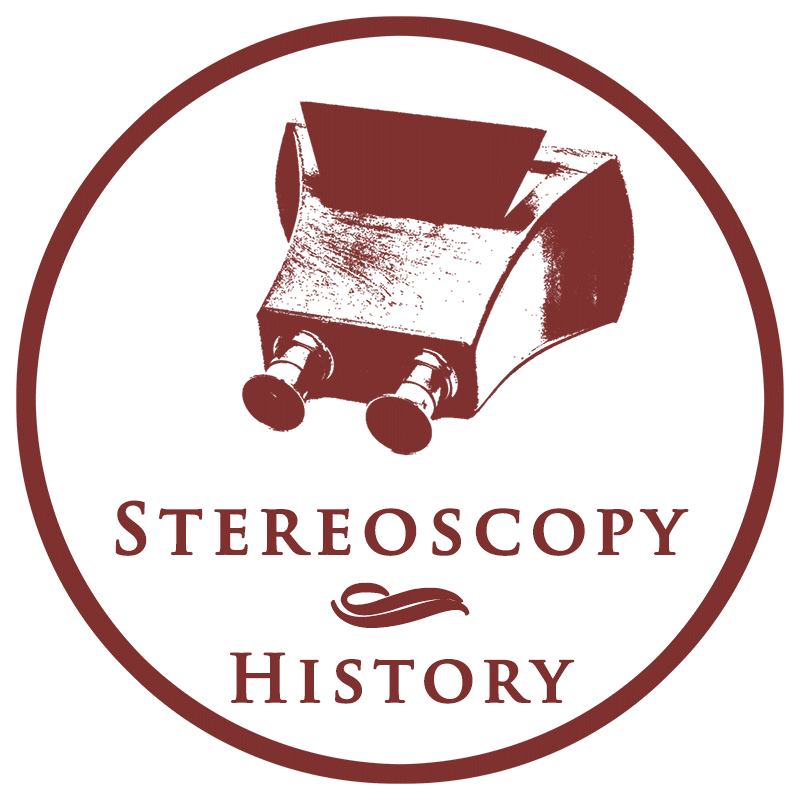
An early Brewster-type stereoscope with prismatic lenses. The viewer has a rare pull-out drawer in which the stereoviews are placed. The front panel with the lenses can be opened. There is a lid at the top that can be opened to illuminate the paper images. The inside of the lid probably contained reflective foil to direct light, but the foil is missing. Foil was replaced by a mirror in later stereoscopes. The logo with the initials DS is engraved at the bottom of the viewer. The logo links the stereoscope to manufacturer Duboscq-Soleil.
Specifications
| Manufacturer: | Duboscq-Soleil |
| Year of introduction: | c. 1852 |
| Year of manufacture: | c. 1855 |
| Type: | Hand-held |
| Viewer: | Single-view |
| Serial number: | None |
| Stereoview support: | Glass and paper card stereoviews |
| Stereoview format: | 9 x 18 cm |
| Lens focussing: | No |
| Inter-ocular adjustment: | No |
| Eyepiece blinders: | No |
| Dimensions (L x W x H): | 23 x 16 x 11 cm |
| Construction: | Wood |
Glossary: hand-held / inter-ocular adjustment / prismatic / single-view
Jules Duboscq
Louis Jules Duboscq (1817–1886) was a French instrument maker and pioneer of stereoscopy. Duboscq was apprenticed in 1834 to the instrument maker Jean-Baptiste-François Soleil (1798–1878), and he married one of Soleil’s daughters. After Soleil’s retirement in 1848, Duboscq continued the instrument workshop under the name Duboscq-Soleil. David Brewster showed the prototype of his compact lenticular stereoscope to Duboscq in 1850. Duboscq recognised the potential of the viewer, and he started manufacturing and selling stereoscopes and stereoscopic images. He also extended the Brewster-type stereoscope by attaching a frosted glass plate to the back of the device to illuminate glass stereoviews. This feature paved the way to the success of glass stereoviews in the 1850s and 1860s.
